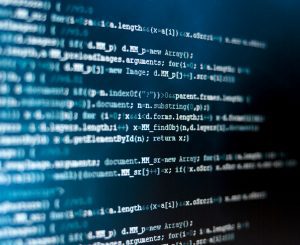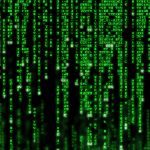The World’s Most Sophisticated Software
There is a tendency in the electronic evidence field to lose sight of the fact that, although the battleground is different, the way the war is fought is the same. Electronic discovery motions are still discovery motions, destruction of electronic evidence is still spoliation and computer forensic investigations are still investigations.
Because of the jargon in the field and the general aura of complexity that surrounds computers, it’s not unusual in the electronic discovery industry to get tunnel vision regarding data and fail to get the bird’s-eye view of the case.
A law firm doesn’t “process some documents” – they review them. A large body of evidence is sorted in a specific way: duplicate items are cast off early in the review by people without any particular expertise in the law or the case. As the body of evidence becomes smaller, the difficulty of review goes up. More knowledgeable reviewers filter out irrelevant documents, further reducing the data. Finally, a reviewing attorney conducts a review, using their knowledge of the law and the details of the case to determine the relevancy and importance of documents and how they fit into the case. A meticulous review will often uncover facts that were previously unknown – often facts that nobody was even looking for.
In many cases, the tendency to view electronic discovery as a machine – hard drives go in this side, PDFs come out that side – does a great disservice to the e-discovery industry and the legal field as a whole. That is not to say document processing is not good – indeed, it’s vital to be able to quickly bring terabytes of data under control and extract relevant, reviewable evidence. It’s the industry’s growing reliance on software rather than people that are dangerous.
A computer’s greatest strength is also its greatest weakness: they do exactly what they are told to do. Tell a computer to determine if “akshul” is spelled correctly and it will search through a dictionary, apply some criteria common to English and ask if we mean “actual” instead. This is the strength in computing. Regardless of the spelling ability of the operator, the computer knows the right answer.
However, ask a computer to correct this phrase: “eye sea ewe” and it will pass it on as perfectly spelled. Here is where the fault of over-reliance on software lies. Even a schoolchild can identify this as out of place and interpret it correctly, but the computer simply does what it’s told to do: check each word and if it’s correctly spelled, move on.
Sophisticated software exists to mitigate some of these issues. “Fuzzy searching” allows you to enter keywords and returns hits that are “close” to what you’re searching for – perhaps a keyword was spelled wrong, with two letters reversed. Fuzzy searching will return this as a possible hit for review. There is also software that uses “conceptual searching” – looking for ‘law’ also produces hits relating to ‘legal’ and ‘court’ – an amazing development that continues to grow more sophisticated.
At the top-end, software costing millions of dollars is trying to put some of the knowledge and experience of reviewers into a package that can automate a process that was once completely human. In many cases, it is astonishingly successful if it’s properly configured and implemented.
Still, fooling a computer is often easier than fooling a human. A computer looking for an email regarding illegal stock trades may have a host of keywords: ‘drop’ ‘price’ ‘downturn’ ‘bottom’ ‘loss’ ‘sell’ and so forth, but it won’t see what you do in this exchange:
“How’s it going today?”
“Everything is the Titanic today, jump ship.”
The message is clear as a bell, but our software passes right over it, foiled by the lack of human experience that Joe Everyman has.
In the end, digital investigation is still investigation. Between our ears, we have an amazingly powerful computer, continually upgraded and updated. Capable of nuanced understanding and on-the-fly decryption of previously unknown data, it has never been matched in the technological world. An expert investigator can provide information that is beyond the foreseeable capability of computer software. He can provide opinion answers to general questions, he can point to the absence of things that should be somewhere, he can identify deception, dishonesty and evasion and he can feed ideas into the case.
In the end, the strength of humans in electronic discovery is simply that they are humans.








